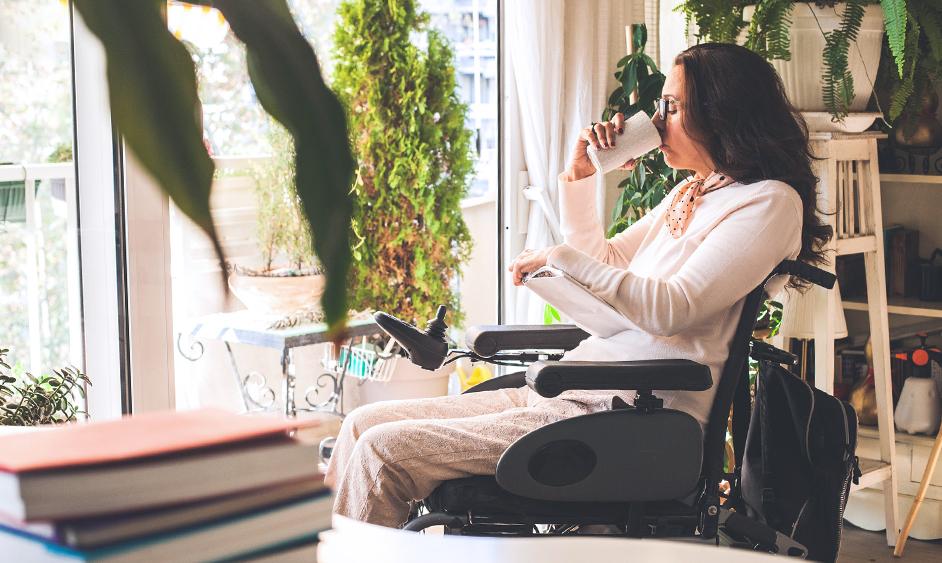
Dr. Thalia Field recognized as one of Canada’s Top 40 Under 40 for excellence in stroke research and engaging underrepresented populations.
Long before COVID-19 forced residents to self-isolate or stay close to home, Vancouver Coastal Health Research Institute (VCHRI) scientist Dr. Thalia Field and her collaborators had been focusing on how individuals living far away from research centres in B.C. and Canada could access post-stroke care and participate in clinical trials.
“This is about fairness and engagement,” says Field, a stroke neurologist and fellowship program director with the Vancouver Stroke Program. “It’s about not being denied the opportunity to participate in a research study or receive care just because you live in a rural or remote area.”

“Being able to make your voice heard as a research study participant, or getting the opportunity to be a research collaborator, even if you live in remote areas, is important.”
Currently, Field is leading a national trial on cerebral venous thrombosis (CVT), which is a rare cause of stroke that primarily affects young women. Because the condition is rare, she and her research team have had to find ways to engage as many people with the diagnosis as possible even though they may not be able to visit the research clinic in Vancouver or other major centres.
“We’ve been looking at how to adapt telehealth as a strategy for research assessment and how we adjust cognitive and other types of assessments accordingly,” Field says. “Because we’ve been working on this even before the COVID-19 pandemic began, it helped us adapt quite nimbly to the challenges of research disruption, which I think was a big win.”
The national CVT clinical trial, called the Study of Rivaroxaban for CeREbral Venous Thrombosis (SECRET), has also demonstrated the need to develop strong partnerships with patients.

“Unfortunately, a lot of these outcomes, like subtle cognitive issues, and problems with persistent headache and fatigue, are difficult to measure using traditional stroke outcome scales. Talking to patients about the outcomes that are important to them and figuring out how we measure them, and especially how we measure them remotely, is critical.”
“We are trying to figure out a way to measure things that are significant to patients that we’re not measuring well enough. If a patient tells me they are suffering from cognitive problems, but the test result suggests they are doing just fine, clearly the test is not good enough.”
Field was recently recognized by BNN Bloomberg as one of Canada’s Top 40 Under 40 Leaders for 2020 for her clinician-research work. She credits strong research team and collaborators as essential to winning the award.
“I might be the face of it, but this is a win for the entire research team, the Vancouver Stroke Program, all of my colleagues, our allied health staff collaborators, and our research partners locally and across the country,” she shares. “Also, this was made possible because of VCHRI’s support for innovation, which has allowed our team to examine telehealth as a tool for research and move the national trial forward thanks to their clinical trials research program.”
“Finally, this award is also a win for all of the patients that we’ve worked with to improve patient-centred outcomes and innovations that work for them and people that care for them.”
Assessing how to make post-stroke assessments possible at home
A recently published paper by Field and research trainee Dr. Alex Rebchuk examined whether scoring strategies might need to be adjusted for at-home adaptations of the National Institutes of Health (NIH) Toolbox cognition battery, which is widely used in post-stroke assessments. The paper was co-authored by VCHRI scientists Dr. Noah Silverberg and Dr. Ivan Torres, and trainees Dr. Molly Cairncross, Michelle Yuan and Arshia Alimohammadi.

Completing the NIH Toolbox battery requires use of a specialized iPad and includes measuring reaction times, which typically needs to be done in person with a clinician. However, Field and Rebchuk examined how the scoring and its interpretation may change by removing those elements that required in-person testing.
“Not surprisingly, we found that the abbreviated scores are not quite the same as doing the whole battery and that you might be overestimating scores if you try to pro-rate them,” explains Field. “Our findings support recommendations that have been put forth for the administration of the NIH Toolbox that you should do a sub-test by sub-test comparison. The next step will be to validate in-person testing conditions for these sub-tests against at-home testing conditions.”
Field remains committed to the challenge of expanding patient assessment access from wherever the patient calls home.
“We’re going to continue trying to figure out a sustainable way to assess people both in a research and clinical context despite the fact that we can’t see them face to face.”


